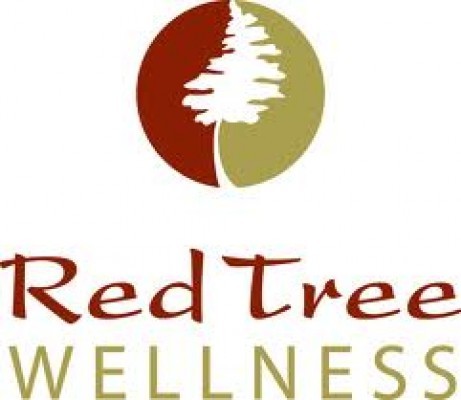
Red Tree Wellness Inc.
**NOTE masks are recommended in the clinic if you have signs of, or are recovering from a respiratory illness. Please self pre-screen prior to your appointment - If you are have a fever, chills, cough or sore throat, avoid coming to the clinic and reschedule.** Thank you!
At Red Tree Wellness, all individual practitioner bookings are private sessions. If you do not see an Open slot, you may ask to be on a wait list or add yourself from your online account.
* We are located in Suite 743 - 550 West Broadway, the Neelu Bachra Centre *
-----
All information you provide on this site is protected by the Personal Information Privacy Act and is not shared with any third parties.
About
A boutique award-winning Vancouver Acupuncture, Herbal, Traditional Chinese Medicine and Naturopathic Medicine clinic established in 2006.
Address
Suite 743 - 550 West Broadway Neelu Bachra Centre
Vancouver, BC
V5Z 0E9
Phone
604-873-3827As a proponent of lifelong learning, Suzanne is committed to keeping pace with evidence-based research on acupuncture, while respecting the heritage of TCM and its founding doctors.
In her youth, Suzanne was drawn to healing professions, yet her passion for languages, culture and travel led her over 12 years of study and work in Taiwan, Hong Kong and mainland China. While living there, she was exposed to Traditional Chinese Medicine formally, as a patient receiving Tui Na, cupping and Acupuncture, and informally as a recipient of OTC herbal at-home remedies. Suzanne ultimately cultivated a career in research and consulting in China and Canada, and finds that her ability to solve problems for businesses in need of “therapy” translates well into healthcare. The holistic approach of TCM suits her love of thorough investigation, communication and resolution of health issues.
Suzanne approaches her TCM practice as a partnership and works with patients to develop lifestyle habits that support long term health and prevention of disease or injuries. This, in tandem with the appropriate dosage of acupuncture treatments, are at the centre of optimal health and healing.
Suzanne studied external martial arts while living in Asia, and has long since been a student of Qi Gong, Tai Ji and other internal martial arts. She is fluent in English and Mandarin. Suzanne now spends much of her time volunteering with community organizations, and can often be found enjoying Vancouver’s water in all its forms, whether racing dragon boats in False Creek, or teaching adaptive skiing on the North Shore mountains.
Dr. Dang dedicated her career towards advancing natural medicine and therapies with a scientific background while also maintaining the vital energetics of Eastern medicine. She is a key health investigator and designs individual health plans through the use of Traditional Chinese Medicine diagnosis, acupuncture, vitamin/supplement/herbal therapies and nutritional/diet guidelines.
Dr. Dang recognizes the complexities and challenges of maintaining health and balance in today’s world. She has clinical interests in family medicine, gastro-intestinal health, autoimmune/dermatologic disorders, endocrine/metabolic/cardiovascular disorders, trauma & addiction, mental health & stress disorders, pain disorders as well as anti-aging/longevity and natural aesthetics.
She is a guide in navigating natural health by blending the wisdom of ancient and modern medicine.
Dr. Sonia Tan began her career in health with a Bachelor’s degree in Honors Kinesiology, with a specialization in Athletic Injuries, from the University of Western Ontario. After her degree, Sonia worked as a Physiotherapy Assistant & Clinical Trial Coordinator at a sports medicine clinic. Prior to entering health care, Sonia worked in banking as a Commercial Account Officer, after receiving her double-major Bachelor’s degree in Economics & Psychology from Wilfrid Laurier University. Sonia has also completed many adjunct and advanced therapy courses, such as Acutonics® Sound Healing, TCM Essential Oils, and Dr. Richard Tehfu Tan's Gold level Balance Method (one of few Certified Gold-Level practitioners), that she continually uses in her practice. Sonia is also an ongoing student of a variety of Martial Arts since 1995, and is grateful to her Shifu the late Dale Johns for her foundation, and to Shifu Matthew Dyck for continuing to guide her along this path. Sonia was also honoured to be named and be a part of the Vancouver 2010 Olympic and Paralympic Medical Team, as an On-Call Specialist (Registered Acupuncturist), and was the Co-Founder and Co-Chair of the BC Sport Acupuncture Association (BCSAA). Sonia teaches both privately and publicly, nationally and internationally. She thoroughly enjoys educating and inspiring about all things Acupuncture and Chinese Medicine!
*NOTE: Telemedicine is available for Chinese herbal or medicine consultations without Acupuncture.